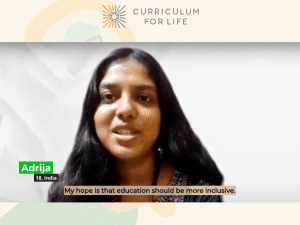Life Skills Learning improves life outcomes
A review of academic studies explored the links between essential skills, such as those related to Life Skills Learning, and broader life outcomes and highlighted evidence of three links.
Essential skills support:
- academic outcomes, particularly via self-management skills, aspiration and positive mindsets, as well as communication skills such as listening and speaking
- positive employment outcomes, including higher earnings
- support social and emotional wellbeing, and prevent negative behaviours
Interestingly, some studies in the review also explored what defines effective delivery and indicated that essential skills interventions tend to be more effective when they are regular, long term, explicit, embedded, structured, supported and targeted.
Read the full report by Angus et al. (2020) here.
Life Skills Learning improves education outcomes
A report stemming from a new quantitative analysis of the British Cohort Study found that higher levels of self-reported essential skills, such as those related to ‘Life-Skills Learning’, are also associated with higher levels of:
☑ literacy at primary school
☑ numeracy at primary school
☑ mathematics qualifications at secondary school
☑ academic performance, as perceived by teachers
☑ career aspiration
Read the full report by Kashefpakdel & Ravenscroft (2021) here.
A further research study conducted with YouGov included more than 3,000 young people aged 16-24 years-old who completed self-assessment tests against frameworks covering a range of essential life skills. The insights generated from the results include:
☑ Young people see the value of essential skills across key aspects of their lives for transition, including academic performance (78%), university entrance (66%), successful recruitment (91%), progression in employment (91%), and overcoming wider life challenges (89%).
☑ There are strong links between higher essential skill scores and self-efficacy and perseverance of effort.
☑ Higher levels of essential skills are correlated with higher social advantage and greater levels of parental engagement.
Read the full report by Kashefpakdel, Ravenscroft & Percy (2021) here.
You can find the references and read an extended summary of the research in this field here.
Latest Blog Posts
Co-creating curricula with students-as-partners
This is a brief summary of Oli’s master’s dissertation, exploring the theory, practices and value of co-creating curricula with students-as-partners.
Framing a Curriculum for Life: The Origins
In this first blog post, I want to describe our purpose and paint a picture of it in action. Assessing our curriculum development approach during

Youth Vision: Shaping the Future of Education
Imagine ten years from now – how should students be learning? Painting a picture of how education should be in the future is a great

